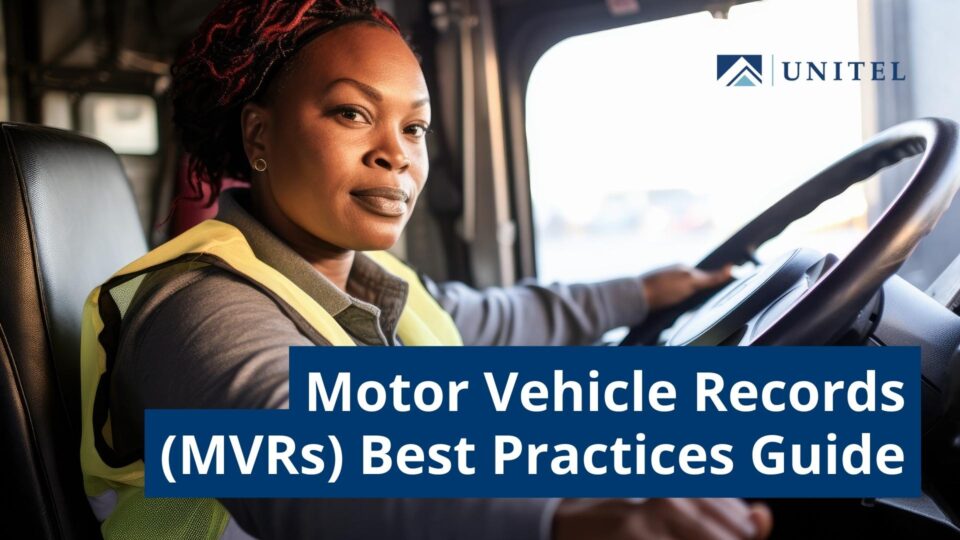Multiple studies conducted on vehicle accidents have shown a direct correlation between past driving performance and future accident experience. Drivers with a history of accidents and moving violations are likely to continue driving in this manner and may pose a serious exposure to your organization.
Establishing a consistent means to evaluate MVRs for authorized drivers’ remains one of the most fundamental controls to manage fleet related exposures. As such, adopting a written policy to address how MVRs will be obtained, the frequency at which they will be reviewed and how they will be evaluated is essential.
This may be used as a guide for fleets of all types. However, it is not intended to address the requirements of commercial carriers (CDL’s) subject to the Federal Motor Carrier Safety Regulations or applicable state Departments of Transportation.

Recommended Program Components
- Must include all authorized drivers of:
- Company vehicles – to include non-employees & family members
- Personal vehicles used for business purposes
- Rental vehicles used for business
- Must establish a means to obtain MVRs:
- State DMV – should include each state in which the applicant has lived in the past 3 years
- Third party vendor
- Must address recommended frequency of review:
- Pre-hire – record must be deemed acceptable prior to allowing applicant to drive
- Annual at a minimum thereafter
- More frequently for drivers with marginal records
Evaluation Criteria
- Must be in writing to ensure consistent application
- Must address minor, major and serious violations as well as accidents
- Should include age specific considerations
- Must be applied to ALL drivers – senior management, family members, volunteers, etc.
- A UNITEL sample policy that includes all the needed criteria is available for those interested.
Program Application
- Recommendations for handling marginal/borderline MVRs
- Prospective applicants – do not hire for driving positions
- Volunteers/family members – do not authorize to drive
- Current employees – counsel, progressive discipline, remedial training, restrict driving privileges, etc.
- An excellent overall goal is to have 70% of all MVRs clear
- Driver communication – It is important that drivers understand your organizations MVR and Fleet Safety Policy. A statement addressing procedures, evaluation criteria and consequences should be included in the policy and adopted. Having drivers acknowledge receipt and understanding by signature is highly recommended.
Documentation and File Content Guidelines
- Employment application
- MVRs
- Release forms – driver’s permission to obtain MVR
- Annual driver review
- Counseling and disciplinary actions
- Employee acknowledgement of MVR policy
In Conclusion
Developing and properly managing a sound driver qualification program and fleet vehicle usage policy is your organization’s responsibility. Fleet operators have a duty to ensure that their drivers are competent. Failure to hire and retain drivers based on their record may lead to allegations of negligent entrustment. Establishing MVR best practices should be a fundamental aspect of your overall risk management platform. Remember, the UNITEL Risk Management Department stands ready to assist you with developing and implementing a written policy that will be effective and help to reduce the potential for loss due to vehicle operations.
The loss prevention information and advice presented in this document is intended only to advise our clients, customers and business partners of a variety of methods and strategies based on generally accepted safe practices, for controlling potentially loss producing situations commonly occurring in business premises and/or operations. They are not intended to warrant that all potential hazards or conditions have been evaluated or can be controlled. They are not intended as an offer to provide insurance coverage for such conditions or exposures, or to imply that UNITEL Insurance or UNICO Group will provide such coverage. The liability of UNITEL Insurance or UNICO Group is limited to the specific terms, limits and conditions of the insurance policies issued, if any.




